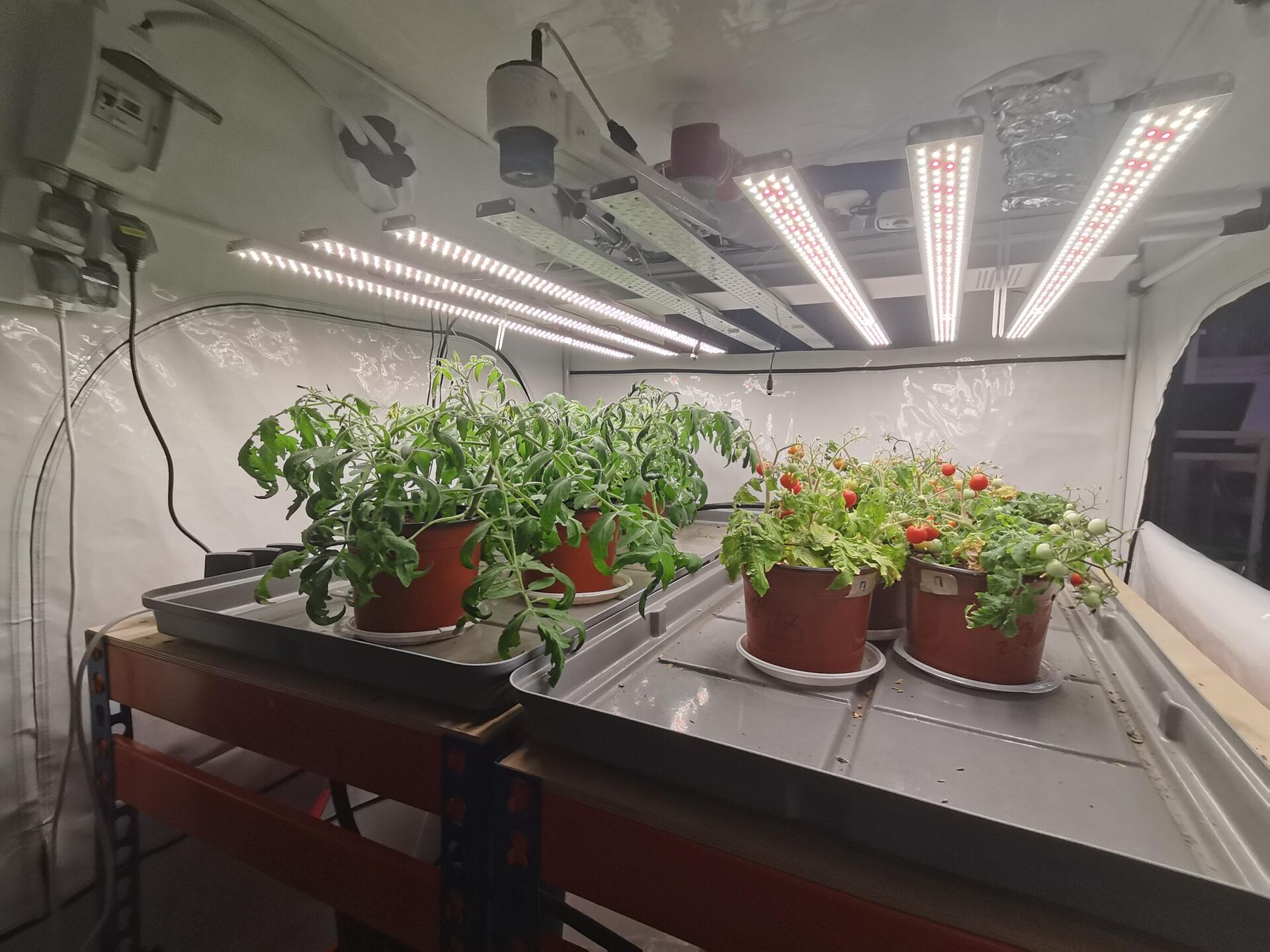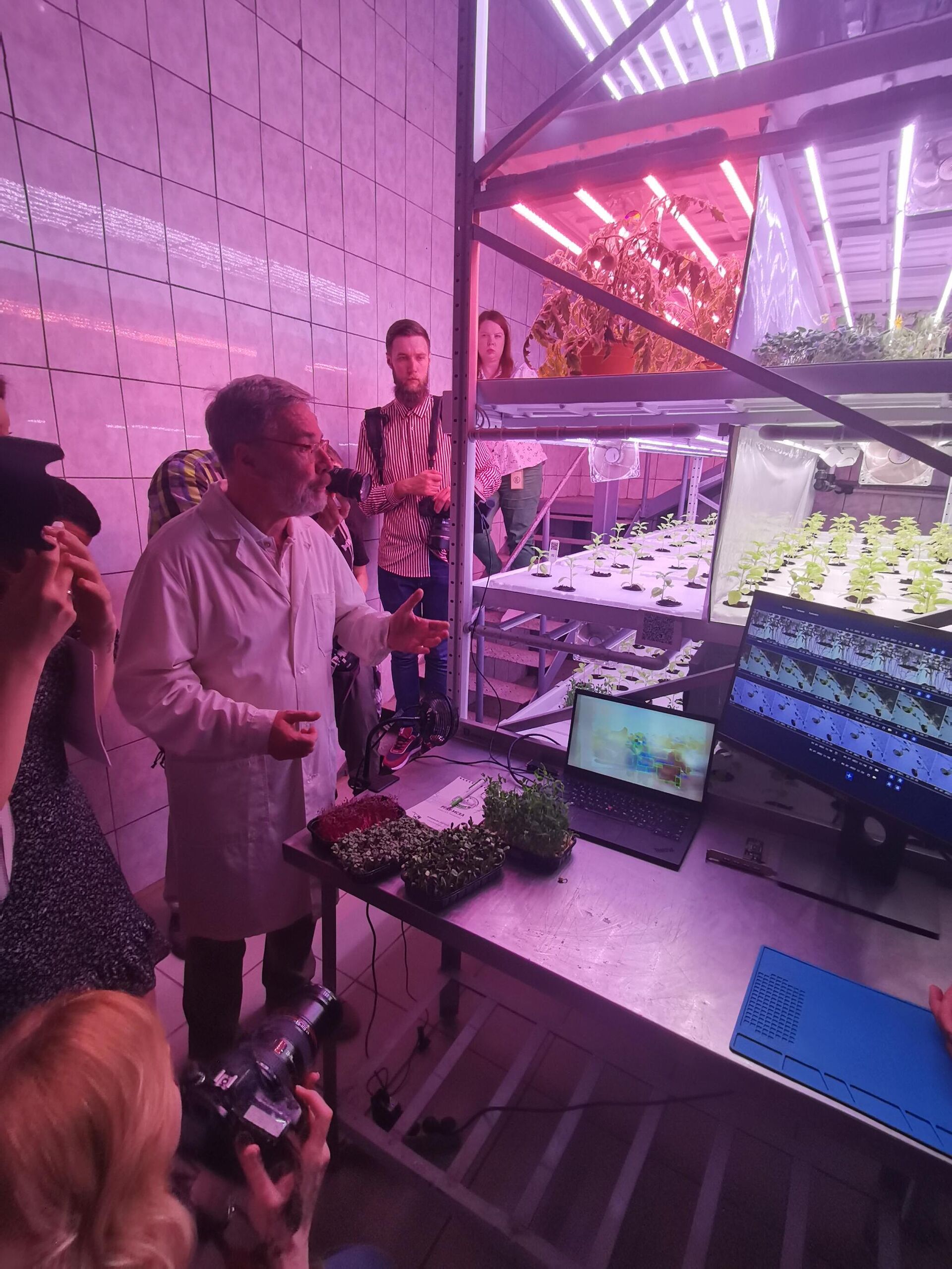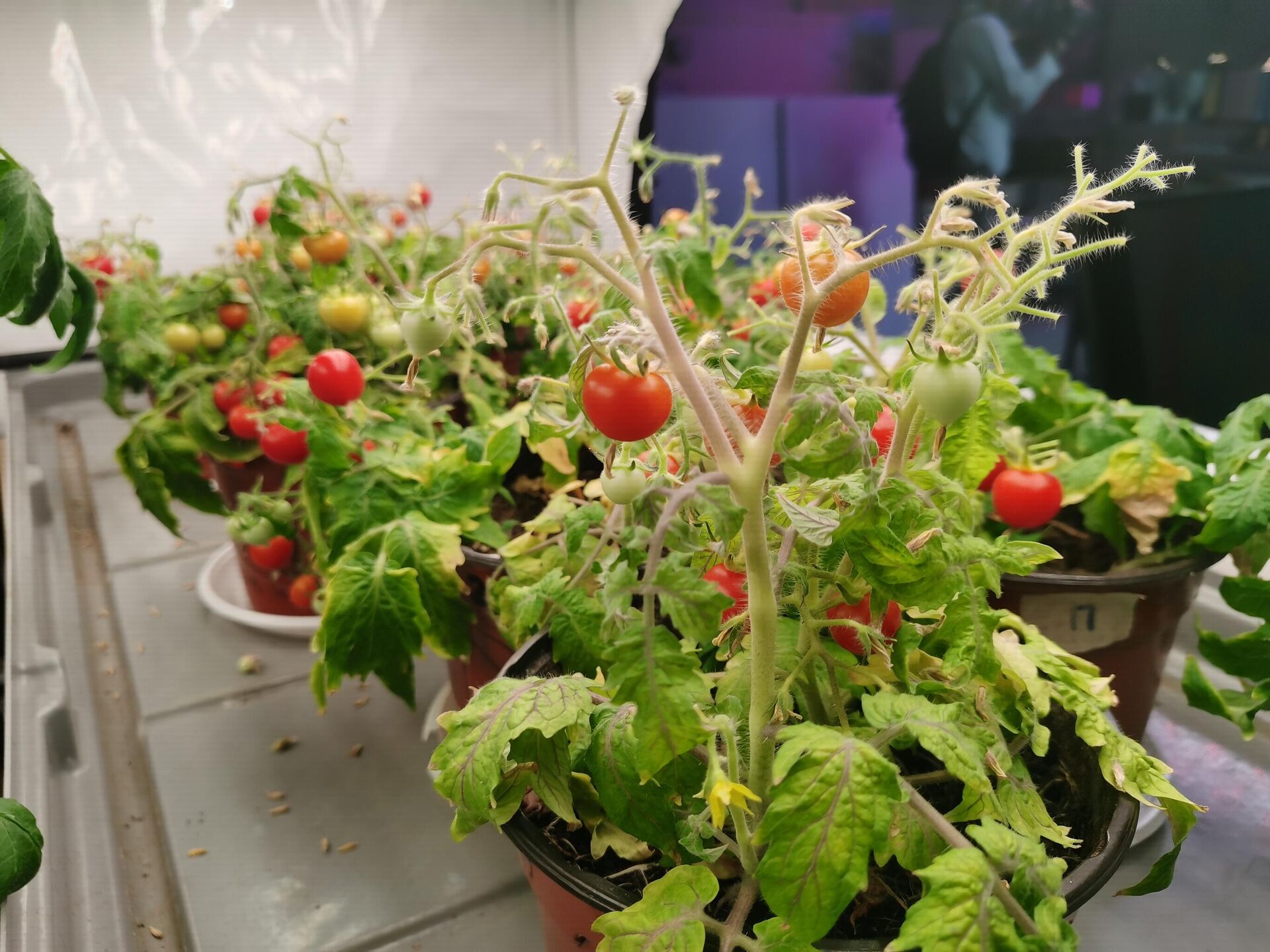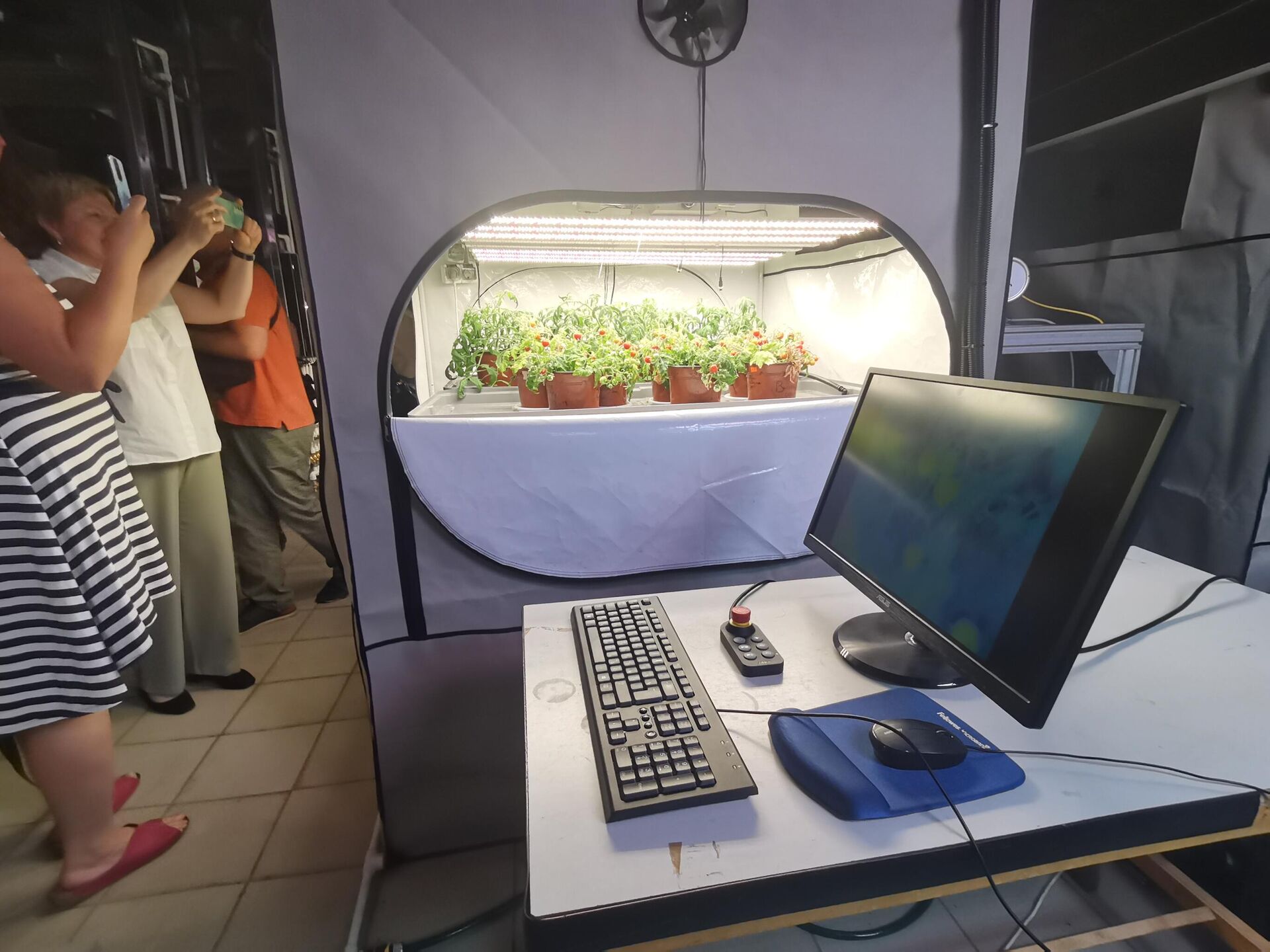https://sputnikglobe.com/20230705/arctic-gardening--ai-powered-city-farms-assure-leap-forward-for-russias-agriculture-1111679696.html
Arctic Gardening & AI-Powered City Farms Assure Leap Forward for Russia’s Agriculture
Arctic Gardening & AI-Powered City Farms Assure Leap Forward for Russia’s Agriculture
Sputnik International
Western sanctions were designed to limit Moscow’s ability to develop its agriculture, but Russian scientists managed to break the blockade, successfully replacing foreign know-how with domestic technology.
2023-07-05T15:32+0000
2023-07-05T15:32+0000
2023-08-01T18:04+0000
arctic
russia
agriculture
artificial intelligence (ai)
russia
https://cdn1.img.sputnikglobe.com/img/07e7/07/05/1111680390_0:257:2730:1793_1920x0_80_0_0_ec0c8a5f242419489b8b83bb09c138cd.jpg
Scientists at the Russian State Agrarian University, also known as the Moscow Timiryazev Agricultural Academy, have focused on creating ways to grow just about any plant in regions that are usually too risky for agriculture, such as territories beyond the Arctic Circle.The concept of photo culture in closed-circuit systems that they use is not new: all sorts of plants can be grown using this technology in a dark and hostile environment with the help of computer-controlled LED lighting and climate adjustments. But what’s really unique for the Timiryazev Academy is the Russian-made software and domestically-produced nanny robots that take care of the plants.At the moment some parts of the photoculture farms are foreign-made. But the scientists are currently aiming at complete replacement of imported technology with domestic advances.According to Alexey Zhuravlev, who is Timiryazev Academy’s vice rector for scientific and innovative development, one of the broader goals for his team is to help enhance Russia’s food security, and building closed-circuit small farms for the Arctic is an important step in that direction:The research is conducted jointly with the "Agrotechnologies of the Future" Research Center, supported by the Russian Ministry of Education as part of the national "Science and Universities" project.The Timiryazev Agricultural Academy is named after the famous Russian imperial botanist Kliment Timiryazev, and was established in the mid-19th century. It currently consists of eight institutes, including regional branches, and is considered to be the country’s top agricultural educational facility, welcoming over 15,000 students from Russia and 73 other nations.
arctic
russia
Sputnik International
feedback@sputniknews.com
+74956456601
MIA „Rossiya Segodnya“
2023
Denis Bolotsky
https://cdn1.img.sputnikglobe.com/img/07e5/06/0b/1083128270_0:0:961:960_100x100_80_0_0_8cd81dafcbaac1c176c25141f8af1d2a.jpg
Denis Bolotsky
https://cdn1.img.sputnikglobe.com/img/07e5/06/0b/1083128270_0:0:961:960_100x100_80_0_0_8cd81dafcbaac1c176c25141f8af1d2a.jpg
News
en_EN
Sputnik International
feedback@sputniknews.com
+74956456601
MIA „Rossiya Segodnya“
Sputnik International
feedback@sputniknews.com
+74956456601
MIA „Rossiya Segodnya“
Denis Bolotsky
https://cdn1.img.sputnikglobe.com/img/07e5/06/0b/1083128270_0:0:961:960_100x100_80_0_0_8cd81dafcbaac1c176c25141f8af1d2a.jpg
russia-, arctic, russian agriculture, ai
russia-, arctic, russian agriculture, ai
Arctic Gardening & AI-Powered City Farms Assure Leap Forward for Russia’s Agriculture
15:32 GMT 05.07.2023 (Updated: 18:04 GMT 01.08.2023) Western sanctions were designed to limit Moscow’s ability to develop its agriculture, but Russian scientists managed to break the blockade, successfully replacing foreign know-how with domestic technology.
Scientists at the Russian State Agrarian University, also known as the Moscow Timiryazev Agricultural Academy, have focused on creating ways to grow just about any plant in regions that are usually too risky for agriculture, such as territories beyond the Arctic Circle.
The concept of photo culture in closed-circuit systems that they use is not new: all sorts of plants can be grown using this technology in a dark and hostile environment
with the help of computer-controlled LED lighting and climate adjustments. But what’s really unique for the Timiryazev Academy is the Russian-made software and domestically-produced nanny robots that take care of the plants.
“First of all, we grow salads and greens, but we also explore growing berries, such as blueberry and raspberry, as well as strawberry,” says Professor Ivan Tarakanov, who is in charge of the artificial climate lab at the Timiryazev Academy. “With the appearance of LED lighting we have got a powerful tool that helps us to control the plant’s green mass gain and the synthesis of target functional characteristics, which is important for medicinal herbs, for instance.”
At the moment some parts of the photoculture farms are foreign-made. But the scientists are currently aiming at complete replacement of imported technology with domestic advances.
“The parts and components are mixed – we are using Chinese LED crystals at the moment, but LED lamps are Russian-made,” Ivan Tarakanov told Sputnik. “But the key thing is that we have domestic software here, which solves the problem of buying expensive foreign software, as the latter is nearly impossible under sanctions. We also have a interdisciplinary approach, so besides agriculture experts we also have IT specialists from the Bauman State Technical University working with us.”
According to Alexey Zhuravlev, who is Timiryazev Academy’s vice rector for scientific and innovative development, one of the broader goals for his team is to help
enhance Russia’s food security, and building closed-circuit small farms for the Arctic is an important step in that direction:
“The Arctic is a whole other world, and creating technologies to grow plants in closed circuit farms, in vertical farms - is something which is definitely a breakthrough. These are the projects that we are proud to showcase to the media today.”
The research is conducted jointly with the "Agrotechnologies of the Future" Research Center, supported by the Russian Ministry of Education as part of the national "Science and Universities" project.
The Timiryazev Agricultural Academy is named after the famous Russian imperial botanist Kliment Timiryazev, and was established in the mid-19th century. It currently consists of eight institutes, including regional branches, and is considered to be the country’s top agricultural educational facility, welcoming over 15,000 students from Russia and 73 other nations.







